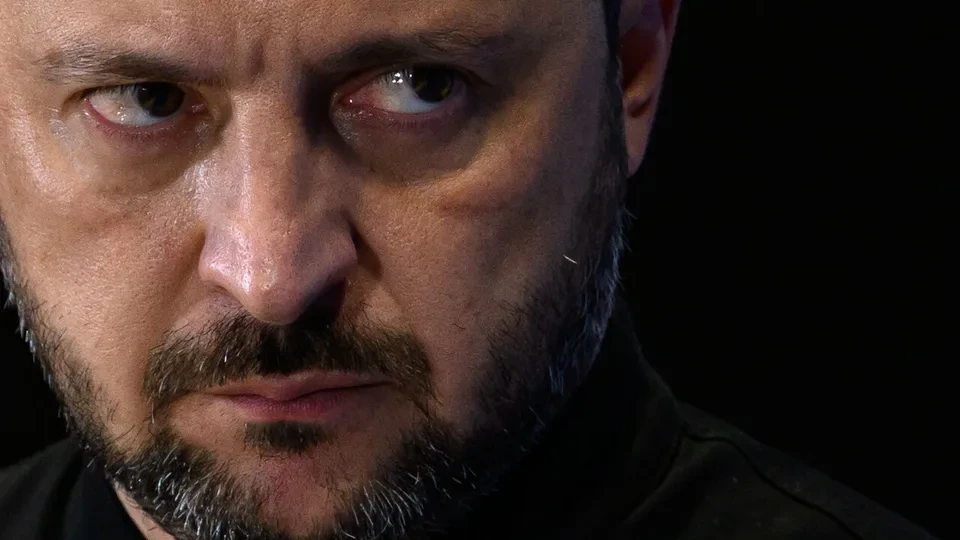On the evening of July 22, Ukrainian President Volodymyr Zelensky signed Bill No. 12414, sparking outrage both inside the country and abroad. The legislation effectively places Ukraine’s two main independent anti-corruption bodies — NABU (National Anti-Corruption Bureau of Ukraine) and SAPO (Specialized Anti-Corruption Prosecutor’s Office) — under the control of the prosecutor general, who is appointed directly by the president.
The bill was pushed through at unprecedented speed. As The Economist reports, it was introduced at an emergency parliamentary committee meeting at 8 a.m. on July 22, without the presence of the committee chair or most of its members. By the evening, it had passed with 263 votes in favor and only 13 against — and was immediately sent to Zelensky for his signature.
According to opposition MP Yaroslav Zheleznyak, the message is clear:
“Today, 263 joyous deputies legalized corruption. The message was simple: you can take whatever you want as long as you stay loyal.”
Signs of Suppression and Purge
Even before the vote, a series of troubling events suggested growing pressure on those who dare to criticize the government. In early July, the appointment of respected detective Oleksandr Tsyvinsky as head of the Bureau of Economic Security was blocked. Then came the arrest of one of the country’s most prominent anti-corruption activists, Vitaliy Shabunin — widely seen as politically motivated.
On July 21, the Security Service of Ukraine and the Prosecutor General’s Office launched sweeping raids on employees of NABU and SAPO — the key components of Ukraine’s anti-corruption system, established with Western oversight after the 2014 Maidan revolution. The officials were accused of corruption and illicit ties to Russia.
These events might have been lost in the usual chaos of Ukraine’s political landscape and inter-agency rivalries. Yes, investigations are ongoing, and it cannot be ruled out that some of the accusations have merit. However, as The Economist emphasizes, the rapid dismantling of the institutional framework built after Maidan suggests something far more disturbing. Sources close to the presidential administration hinted that the immediate trigger for the law may have been NABU investigations into figures within Zelensky’s inner circle.
“The focus has now switched to internal enemies,” said one insider, adding that the administration had decided to seize a moment of impunity.
Internal Shock and Historical Echoes
Even within Zelensky’s team, the passage of the law came as a shock. One senior official drew a direct comparison to the infamous “dictatorship laws” of January 16, 2014, enacted by President Viktor Yanukovych shortly before he fled Kyiv by helicopter. Those laws were aimed at crushing the Euromaidan protests.
The current situation has a similar undertone: instead of direct repression, we now see institutional subjugation and the dismantling of key democratic gains.
The West’s Silence as an Invitation to Backslide
The international response has been predictably muted — if not outright apathetic. EU Enlargement Commissioner Marta Kos warned on social media, ahead of the signing, that such actions could negatively affect Ukraine’s EU accession prospects:
“Independent bodies like NABU & SAPO are essential for Ukraine’s EU path.”
Ambassadors of the G7 countries also issued a joint statement expressing “serious concern.” But in Kyiv, these warnings were largely ignored.
In the past, Ukraine relied on the United States to push its reform agenda. But as The Economist notes, since President Donald Trump’s administration shifted away from prioritizing Ukraine’s internal reforms, Kyiv has been looking to the EU, the G7, and the IMF for guidance. Yet according to Zheleznyak, the response to this democratic backsliding has been far from convincing:
“It was seen to be weak. And our people saw their moment.”
Thus, the adoption of Bill No. 12414 was not just a political maneuver — it marked a symbolic departure from the ideals of the Maidan revolution toward centralized control and political loyalty. The anti-corruption system that Ukraine built over more than a decade with international backing was called into question in a single day.
Now the country faces a critical question: can it remain a democratic state and retain the trust of its allies, or will it choose a path of top-down governance where loyalty matters more than the rule of law?
This article was prepared based on materials published by The Economist. The author does not claim authorship of the original text but presents their interpretation of the content for informational purposes.
The original article can be found at the following link: The Economist.
All rights to the original text belong to The Economist.


















